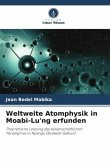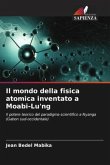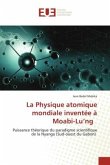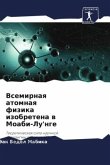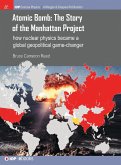From the end of the 19th century until the beginning of the 1920s, the United States was still in its infancy in physics. In Europe, things were much better, but not very advanced. At that time, physicists still had serious reservations about the existence of atoms. However, in July 1915, anonymous Punu scientists from Moabi-Lu'ng in Nyanga (southwestern Gabon), entirely trained in their own scientific paradigm, successfully experimented with a fearsome and terrifying weapon unknown in the world. The testimony of the Frenchman Georges Le Testu, an agricultural engineer who was then the colonial administrator of Nyanga, leaves no doubt. The anonymous physicists of the Moabi-Lu'ng scientific paradigm are indeed the inventors of the first two atomic bombs: uranium 235 and plutonium. This very moving booklet demonstrates with very solid arguments that in the adventure of the invention of atomic physics and nuclear weapons, Black Africa had a 30-year lead (July 1915 - July 1945) over the West.


